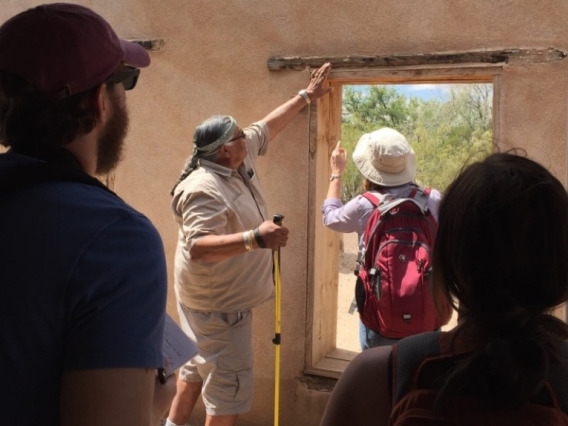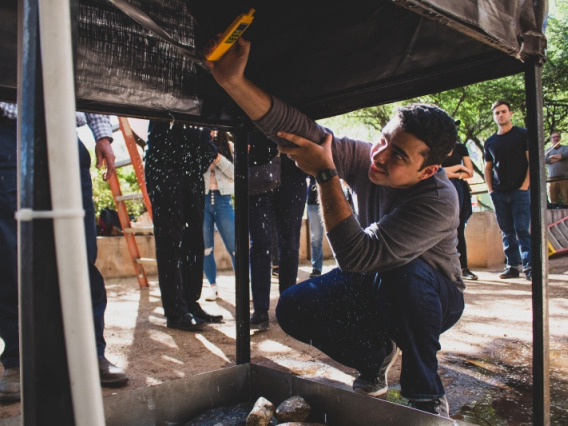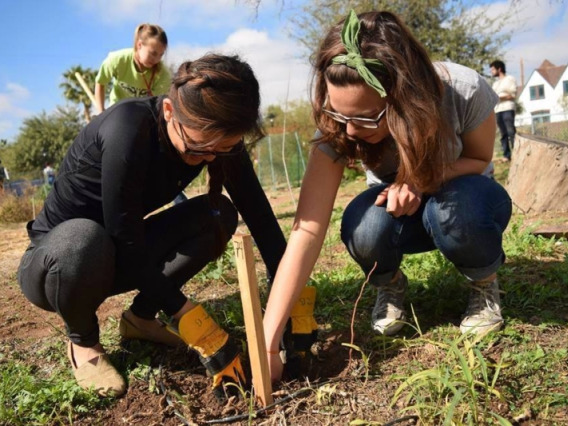Undergraduate Major Programs

Public Health
Health Systems Theory and Practice Emphasis
Prepare for a career as a public health leader helping corporations, organizations, governments and communities with planning, management, and administration. Courses in health economics and policy, public health law and ethics, healthcare marketing, and strategic planning are complemented by an internship that provides professional public health experience in your area of interest.

Public Health
Public Health Practice Emphasis
Study health program evaluation, health policy, law, and ethics to prepare for a career ensuring all communities have access to crucial health services and safe living conditions. Coursework is complemented by with an internship that provides professional public health experience working with underserved populations. Available to fully online public health students.

Public Management and Policy
Environmental Policy Emphasis
Study how public and nonprofit organizations are managed, financed, and organized, and how public policies are made and implemented at the local, state, and federal levels. A major in Public Management & Policy will help you qualify for many different careers in public sector organizations, including local, state, and federal government; nonprofit organizations; and environmental policy.

Statistics and Data Science
Prepare for a career in analytics, risk assessment, finance, and other math- and science-related fields or graduate degrees. Courses in probability, statistics, data science, and computer programming establish a solid mathematics foundation and focus on the capture, maintenance, processing, analysis, and communication of data. Undergraduates also must complete a minor outside the Department of Mathematics.

Sustainable Built Environments
Heritage Conservation Emphasis
Learn about the importance of heritage conservation to preserve and create more sustainable built environments, the processes and protocols of conservation, and current issues in historic preservation and resource management. Graduate prepared for a careers as a manager at nonprofit organizations, leader of government agencies, and consultant in heritage conservation and historic preservation.

Sustainable Built Environments
Sustainable Buildings Emphasis
Hands-on coursework in climate-responsive and net-zero energy design, energy conservation, passive solar design, and natural ventilation systems teaches you to analyze existing and planned structures, apply solutions-based strategies to create workable plans to make buildings more efficient. Graduate with a practical understanding of sustainability and expertise in built environment policy and design.

Sustainable Built Environments
Sustainable Landscapes Emphasis
Identify strategies to design innovative and sustainable landscapes while studying water harvesting, passive cooling, urban heat island mitigation, climate adaptability, how landscapes can improve human health, urban ecology, natural resource management, and environmental policy. Graduate with a deeper understanding of the pivotal role of landscapes in a community and how to make them more sustainable.

Sustainable Plant Systems
Urban Horticulture Emphasis
Focus on assessing, designing, and managing urban landscapes to reduce environmental impact while promoting human health and economic well-being. Build a solid foundation in plant, soil, and water science; gain practical skills in sustainable agricultural practices; engage in hands-on learning; and graduate fully prepared for a career in urban landscape design and management.

Urban and Regional Development
Learn how to analyze data and use geographic information systems while gaining gain hands-on training in the field and interactive remote-sensing laboratories to address questions of urban and regional growth, economic activity, land development, and real estate. Graduate with skill sets in analytical research, industry software, design, and planning law and legislation.
Pagination
Environmental Themes
Career Fields












